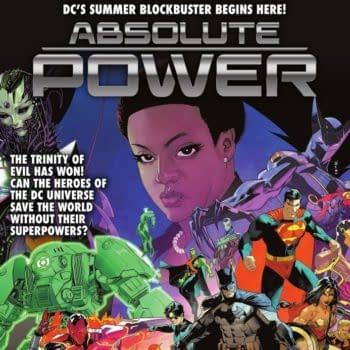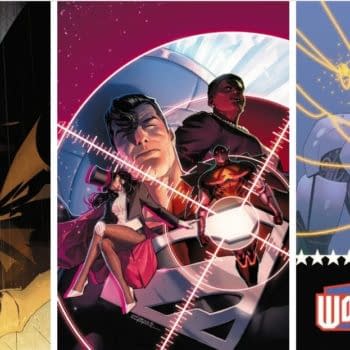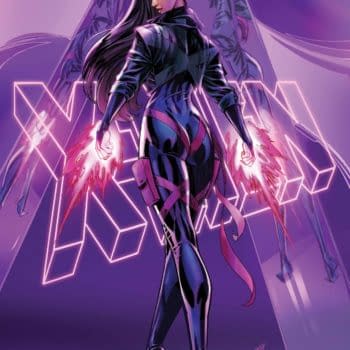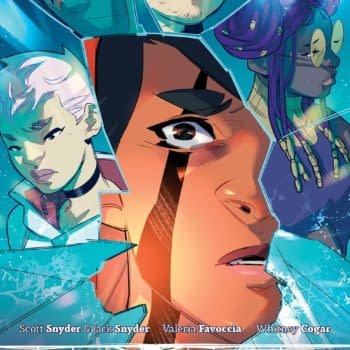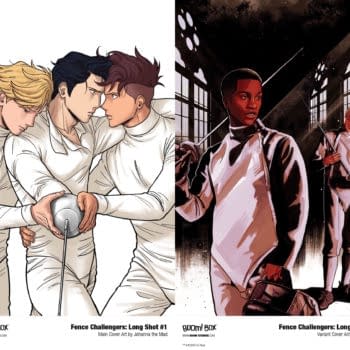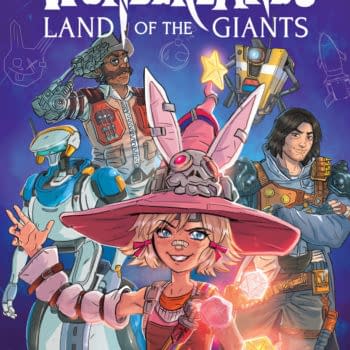Posted in: Comics | Tagged:
When The NRA Supported The Fantastic Four – In 1989
So politics and superhero comic books. Some people object to a recent uptick in the appearance of politics, politicians and political storylines in superhero titles, especially those that tap into current political figures, talking points and events, as well as the rise of social media activism. It's a trend that Bleeding Cool has been monitoring – indeed celebrating – as superhero titles again try to mirror what Stan Lee once called "the world outside your window".
It has ever been thus, whether Captain America in 1939 promoting an end to the US policy of isolationism in World War II by punching Hitler, Superman raising war bonds to "slap a Jap", with communist infiltration causing the Incredible Hulk, Captain America standing down after unearthing Richard Nixon as head of the Secret Empire, Watchmen looking at both the effects of increasing government control and the cost of an ultimate liberal fantasy, V For Vendetta exploring the addictive, attractive qualities of fascism, the X-Men exploring the passive or active resistance of minorities for civil rights – and many more examples. But now, arguably, superhero comic books find themselves exploring the minutia of political matters, and approach that has been ramping up since the involvement of Nazi-punching Warren Ellis, Mark Millar and Grant Morrison in the nineties and noughties with The Authority, The Ultimates and New X-Men.
I would argue that while this partisan political arguing may be more pronounced in recent years, this is hardly some kind of "virtue signalling" shift. It's just continuing a trend led by both the market and the passions of comic book creators. And it's not that new. Consider the Fantastic Four #355 from 1989 by Walter Simonson and Rich Buckler.
Over a decade before Civil War, Congress was pushing through a superhero registration act. So the Fantastic Four headed to Washington to talk to a Congressional hearing.
Oh, and they were also dealing with a press desperate to create Fake News. Apparently, they had that in 1989 as well.
But they weren't the only ones in the room, there to warn against the implications of such legislation.
They were also backed by the National Rifle Association, the NRA.
That's right, the NRA fighting alongside the Fantastic Four, defending the individual's rights to possess the powers they have… just as they do the right to bear arms. And possibly arm bears, I sometimes get confused on that point.
For those who see superheroes as some kind of leftist fight for equality, it's also worth pointing out the conservative roots of the form, one that emphasises individual duty rather than collective action, acting without state intervention, and just a soupcon of might-makes-right. This scene underlined that rather firmly. Even if it surprised Ben Grimm…
And it's a view Ben Grimm, despite himself, seems to get down with.
Of course, if social media had been a thing back in 1989, who know how it would have gone down?














